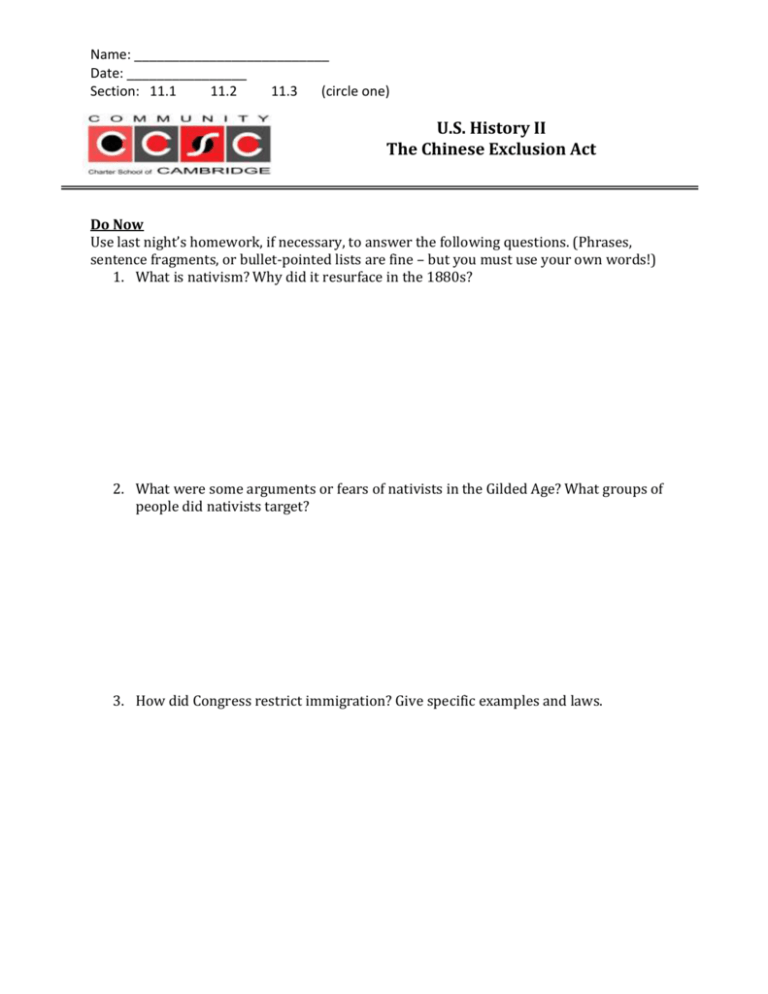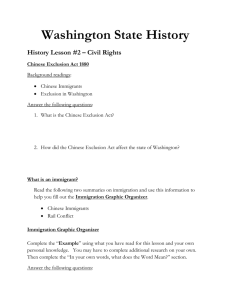2.6 Chinese Exclusion Act DBQ prep
advertisement

Name: __________________________ Date: ________________ Section: 11.1 11.2 11.3 (circle one) U.S. History II The Chinese Exclusion Act Do Now Use last night’s homework, if necessary, to answer the following questions. (Phrases, sentence fragments, or bullet-pointed lists are fine – but you must use your own words!) 1. What is nativism? Why did it resurface in the 1880s? 2. What were some arguments or fears of nativists in the Gilded Age? What groups of people did nativists target? 3. How did Congress restrict immigration? Give specific examples and laws. Exit Ticket Pick one of the primary source documents you read in class today. According to that document, why was the Chinese Exclusion Act passed? Your response should refer to specific evidence (DRT or SRT). 8 Awesome 7 Solid 6 Getting there 5 Needs serious work 4 Missed the point completely Name: __________________________ Date: ________________ Section: 11.1 11.2 11.3 (circle one) U.S. History II HW 2.6: Chinese Exclusion Act Research Simulation Prep Instructions In your next class, you will write your second research simulation (otherwise known as a DBQ) on the prompt: Why did Congress pass the Chinese Exclusion Act of 1882? Your response will be based on the four documents in your coursepack under the heading “Primary Sources: The Chinese Exclusion Act,” pp. 44-47. Your response should include the following elements: Thesis statement Three body paragraphs Cites all four sources Includes background information describing the context of industrialization and the ‘new immigration’ As preparation for this in-class writing exercise, you should do the following: 1. In your coursepack, annotate the documents as you see fit. 2. In your notebook, answer the following guiding questions in complete sentences and in your own words. a. According to Document A, what does the Chinese Exclusion Act do? What Chinese people can still be in the United States after the Chinese Exclusion Act comes into effect? b. According to Document B, how do Chinese people view white Americans? c. What stereotypes of Chinese people are expressed in Document B? d. According to Document C, why is Chinese immigration a threat to working Americans? e. What group of people is the intended audience for Document C? f. According to Document D, what explains Americans’ treatment of Chinese immigrants? g. Why does the author of Document D compare Chinese immigrants to other immigrant groups, such as Jews and Italians?





